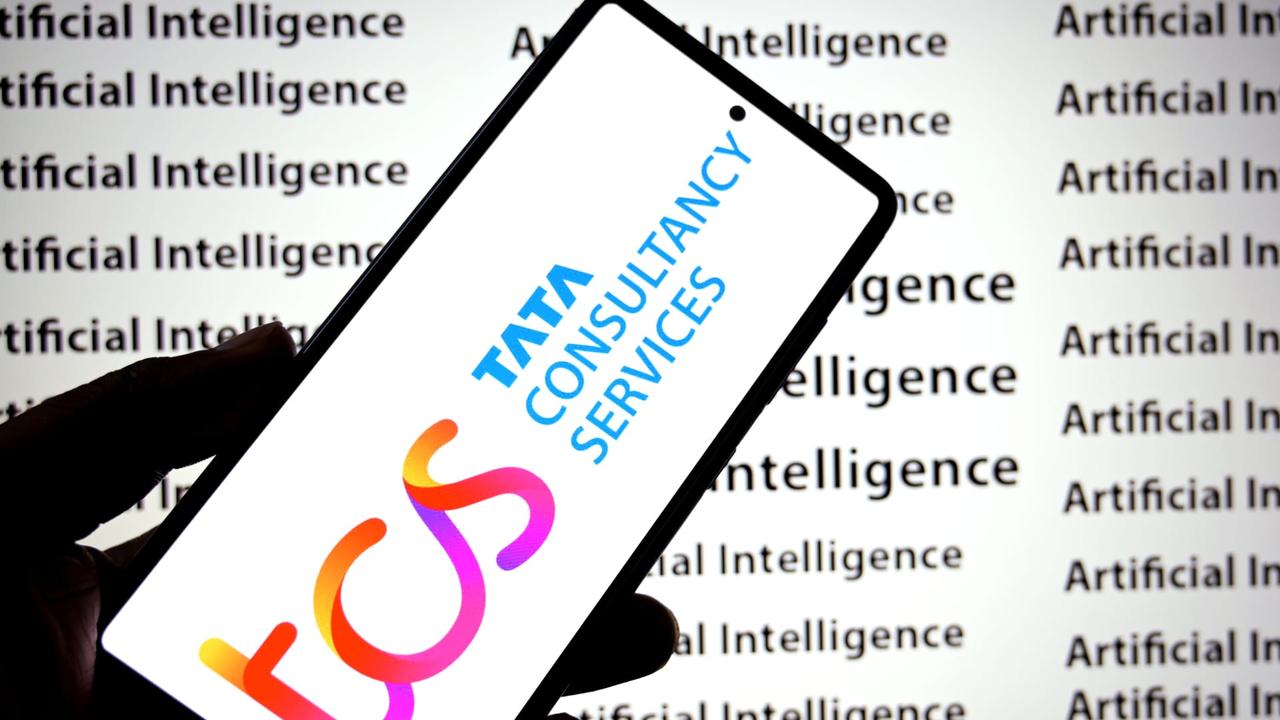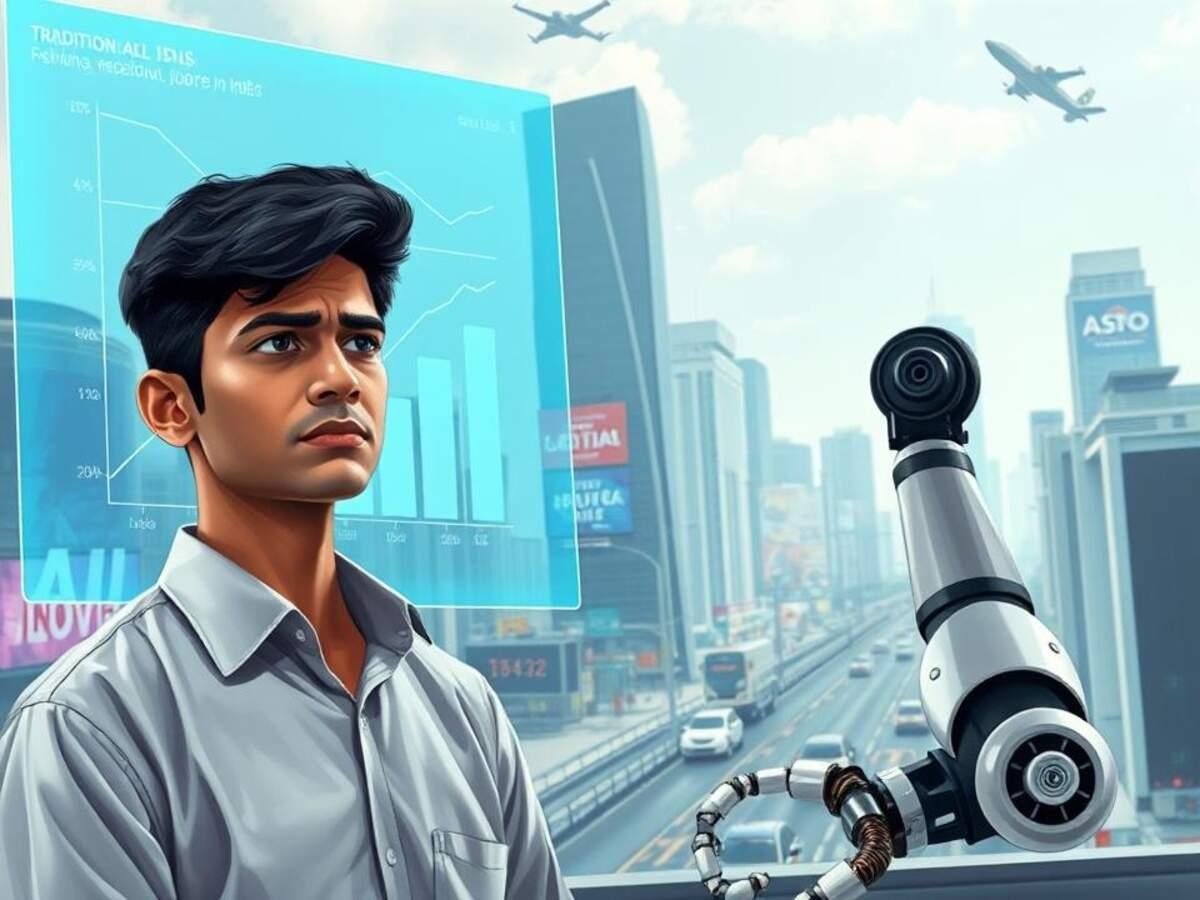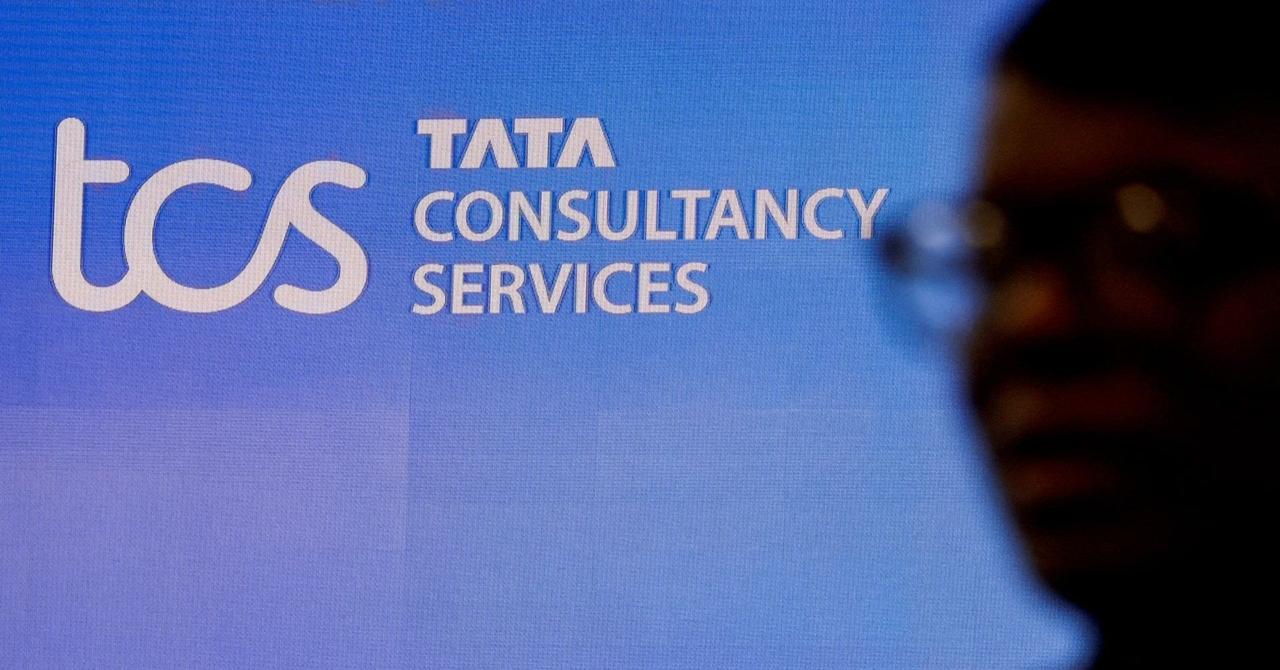AI's Dual Impact on India's Job Market: Disruption and Creation in Tech Sector
4 Sources
4 Sources
[1]
India's IT layoffs spark fears that AI is hurting jobs in a sector critical to its economy
India could risk "getting stuck in the middle-income trap" if its economy doesn't adapt, she added. India's IT sector is facing job cuts, and analysts are wary about what the impact of artificial intelligence might mean for an industry critical to the country's broader economy. The country's largest private sector employer, Tata Consultancy Services, which employs over half a million IT workers, announced last month that it would cut more than 12,000 jobs from mostly the middle and senior management levels, equating to 2% of its global workforce -- in what will be its biggest layoff so far. The company's CEO and managing director K Krithivasan attributed the move to "limited deployment opportunities and skill-mismatch" rather than AI. But that did not quell growing unease within the country, as many viewed the layoffs as a sign of broader and disruptive changes underway in the IT sector, amplified by the growing influence of AI. TCS and its peers have long relied on India's vast pool of low-cost, skilled labor to produce software services, a model now coming under pressure as AI is set to automate repetitive tasks and as global clients demand higher levels of innovation. The IT sector has long been highly sought after among India's large pool of engineering graduates, meaning any slowdown will have ripple effects across the economy. India produces over 1.5 million engineering graduates annually, according to local media reports. The sector contributed roughly 7.5% to India's gross domestic product in fiscal year 2023.
[2]
Agentic AI to Create 3 Mn New Tech Jobs in India in 5 Years, Says ServiceNow | AIM
The study identified key actions taken by leading companies -- called "AI Pacesetters" -- to move forward India is on the brink of a major workforce shift, with agentic AI expected to transform over 10.35 million jobs by 2030, according to the ServiceNow AI Skills Research 2025, released in partnership with Pearson. This change marks one of the largest workforce transitions in the world and highlights India's growing strength in AI adoption and digital innovation. "India's AI journey is at a defining moment with agentic AI reshaping the workforce and creating over 3 million new tech jobs by 2030," said Sumeet Mathur, senior VP and MD, ServiceNow India technology and business centre. The report shows that Indian companies are moving faster than others in the Asia-Pacific (APAC) region in adopting AI. Around 25% of Indian enterprises are already in the advanced transformation phase, ahead of Singapore (20%) and Australia (21%). Many of these companies have shifted from running small pilot projects to fully implementing AI in day-to-day operations. The study identified key actions taken by leading companies -- called "AI Pacesetters" -- to move forward. These include having a clear AI vision, investing in skilled talent, building strong governance, and scaling AI tools like Agentic AI. 57% of these companies reported increased efficiency and productivity, while those that redesigned their workflows saw a 63% productivity boost. "India has a generational opportunity to lead globally by developing AI-ready talent and redesigning workflows," Mathur said. "The era of scattered pilots is behind us. Competing globally now requires bold execution, integrated strategy, and genuine human-AI collaboration built on trust, transparency, and skill." The report also highlights impact across job roles due to the rise of agentic AI. Routine tasks previously handled by roles like payroll clerks and change managers are now being taken over by AI agents. Meanwhile, positions such as system administrators and implementation consultants are increasingly being supported and enhanced by AI tools. The impact of this transformation will be most significant in sectors like manufacturing, which is expected to see changes in 8 million jobs, followed by retail with 7.6 million and education with 2.5 million roles being redefined. With the world's largest youth population and a rapidly growing digital economy, India is expected to add 3 million tech workers over the next five years. The AI Maturity Index found that Indian enterprises are increasingly investing in future-focused roles to strengthen their AI capabilities. Among the most in-demand positions are AI Configurators, with 66% of companies hiring for this role, followed closely by Data Scientists at 65%, and Experience Designers at 57%. However, challenges still exist. 30% of Indian businesses cite data security as their biggest concern -- more than any other country in the region. Another 26% say they are unsure about the future skills their employees will need. To succeed, the report urges businesses to move beyond just reviewing AI outputs. Instead, they must train employees to understand and question how AI works, making sure AI tools are trustworthy and used responsibly.
[3]
Jobs at Risk: AI's reality check - The Economic Times
AI is putting white-collar roles at risk and darkening the dreams of India's aspirational youth. Recruitment firms report job erosion across sectors as AI replaces repetitive tasks. While some new jobs will emerge, a significant skills shift is expected, impacting 38% of core skills in India.India's white-collar workforce has started feeling the tremors of job displacement due to AI with India's largest IT employer Tata Consultancy Services (TCS) announcing it will cut 12,000 roles. While the country's technology industry has weathered several downturns in the past -- from the post-Y2K lull to the 2008 financial crisis and the Covid-era freeze -- the current shift is unlike any before. AI is rewriting job descriptions, replacing repetitive roles and forcing a reset on what skills are truly futureproof. It's part of a broader trend. Recruitment firms report the erosion of jobs across the board-from finance and insurance to marketing and customer service. According to the World Economic Forum's 2025 Future of Jobs report, the structural labour market shift will impact 22% of today's jobs globally, although it foresees an overall rise. Nearly 8% (92 million) will be lost, while 14% (170 million) new jobs will be created. This will result in net growth of 7% in total employment, or 78 million jobs in 2025-2030, it said. For India, 38% of existing core skills are expected to change. The traditional job pyramid of the Indian white-collar workforce -- wide at the base with repetitive roles -- is being compressed, experts said. Hiring is becoming more selective, with companies placing a premium on value-creation over volume. Rule-based and pattern-driven processes are already being replaced with AI's speed and accuracy, said Sachin Alug, CEO of recruitment firm NLB Services. "We're already seeing it in roles such as customer service agents, data entry operators, invoice processors, and junior audit staff. In many cases, AI handles the first layer of work, such as responses, validations, and summaries, faster and with fewer errors." The BPO and KPO (business and knowledge processing outsourcing) sectors, India's largest employment engines, are also under pressure. Voice-based customer service agents, chat support, transcription and data-cleaning roles are all at risk due to co-pilots and conversational bots. Nearly 65% of retail jobs and up to 70% of financial reporting tasks could be automated in the coming years, said Neeti Sharma, CEO at recruitment firm TeamLease Digital. "Already, about 30% of global customer service requests are handled by AI, and junior roles in legal and audit are being reduced as AI reviews documents and checks compliance," she said. The squeeze isn't immediate but seems inevitable. "While these roles are not vanishing overnight, many organisations, especially in captive centres and large shared services setups, are seeing a slowdown or freeze in hiring unless driven by fresh investments or expansion mandates," said Sanketh Chengappa KG, director and business head, professional staffing at Adecco India. The cascading effect of job displacement is creating higher entry barriers for younger people entering the workforce, he said. It may create urban unemployment clusters, particularly in cities with a high concentration of BPO/KPO jobs, and enhance income inequality. AI disruption isn't confined to entry-level workers. Mid-career professionals are increasingly vulnerable, especially those with 15-25 years of experience in functions now becoming redundant, said Shyam Menon, co-founder of the Bharat Innovation Fund. He noted that this cohort is at risk due to outdated skillsets and limited exposure to newer tools. He also noted that the narrative around AI is heavily skewed towards coding and data science. "This creates a perceived 'tech wall' for professionals in fields like human resources, marketing, sales, and arts," he said. According to Maya Nair, executive director at Grafton Recruitment India, companies are beginning to prioritise productivity over manpower. "In manufacturing and healthcare sectors, automation or data entry folks and base level roles in finance, admin, HR are where chatbots are being introduced to provide solutions to queries raised within minutes, which previously took two days by employees doing the same role," she said.
[4]
AI to impact 1.8 crore jobs in manufacturing, retail, education sectors by 2030: Report - The Economic Times
Manufacturing jobs will bear the highest impact with 80 lakh workers to be affected, closely followed with retail with 76 lakh jobs to be impacted and education jobs impact is pegged at 25 lakh over the next five years, as per the report by Servicenow.Manufacturing, retail and education sectors are staring at a "seismic" shift due to agentic artificial intelligence, and over 1.8 crore jobs are set to be impacted in these sectors by 2030 due to new-age technologies, a report said on Wednesday. Manufacturing jobs will bear the highest impact with 80 lakh workers to be affected, closely followed with retail with 76 lakh jobs to be impacted and education jobs impact is pegged at 25 lakh over the next five years, as per the report by Servicenow. The report specified that high-automation roles like change managers and payroll clerks are being redefined by AI agents that take over routine coordination, while "high-augmentation" roles such as implementation consultants and system admins are increasingly partnering with AI, and not competing with it. There is widespread concern on the impact of AI on jobs, and after country's largest IT services company TCS announced to cull 12,000 jobs accounting for 2% of the overall workforce due to aspects including artificial intelligence. Sumeet Mathur, managing director for Servicenow India Technology and Business Center, said agentic AI will create over 30 lakh new technology jobs by 2030. It is also reshaping the workforce, and will "redefine" over 1.35 crore roles, he said. "India has a generational opportunity to lead globally by developing AI-ready talent, redesigning workflows, and reorienting business models around continuous innovation," Mathur said. The company also did a survey of over 500 industry leaders on AI adoption, which said 13.5% of tech budgets are already committed to AI adoption and a fourth of Indian enterprises are in the transformation phase. Data security tops the list of concerns for 30% of Indian enterprises while 26% of organisations "remain unclear" about the future skillsets required, the survey said, pointing out that this highlights the urgent need for strategic foresight and structured, cross-functional reskilling pathways.
Share
Share
Copy Link
AI is reshaping India's job market, particularly in the IT sector, causing layoffs but also creating new opportunities. The transformation is expected to impact millions of jobs across various industries by 2030.
AI's Disruptive Impact on India's IT Sector
India's IT sector, a critical component of the country's economy, is facing significant disruption due to the rapid advancement of artificial intelligence (AI). Tata Consultancy Services (TCS), India's largest private sector employer, recently announced plans to cut 12,000 jobs, primarily from middle and senior management levels
1
. While TCS attributes this to "limited deployment opportunities and skill-mismatch" rather than AI directly, the move has sparked concerns about AI's broader impact on the industry1
.
Source: CNBC
The Scale of AI-Driven Transformation
According to the ServiceNow AI Skills Research 2025, agentic AI is expected to transform over 10.35 million jobs in India by 2030
2
. This transformation is set to create more than 3 million new tech jobs over the next five years, marking one of the largest workforce transitions in the world2
4
. The impact will be most significant in sectors such as:- Manufacturing: 8 million jobs affected
- Retail: 7.6 million jobs impacted
- Education: 2.5 million roles redefined
2
4
AI Adoption and Company Strategies
Indian companies are moving faster in AI adoption compared to their Asia-Pacific counterparts. About 25% of Indian enterprises are already in the advanced transformation phase, ahead of Singapore (20%) and Australia (21%)
2
. Leading companies, termed "AI Pacesetters," are taking key actions such as:- Developing a clear AI vision
- Investing in skilled talent
- Building strong governance
- Scaling AI tools like Agentic AI
2
Emerging Job Roles and Skills

Source: ET
The AI Maturity Index reveals that Indian enterprises are increasingly investing in future-focused roles to strengthen their AI capabilities. The most in-demand positions include:
- AI Configurators (66% of companies hiring)
- Data Scientists (65%)
- Experience Designers (57%)
2
Challenges and Concerns
Despite the potential for job creation, there are significant challenges:
- Data security is cited as the biggest concern by 30% of Indian businesses
- 26% of organizations are unsure about future skill requirements
2
- The World Economic Forum's 2025 Future of Jobs report predicts that 38% of existing core skills in India are expected to change
3
Related Stories
Impact on Traditional Job Roles

Source: ET
AI is already replacing repetitive tasks across various sectors:
- Customer service agents
- Data entry operators
- Invoice processors
- Junior audit staff
3
The BPO and KPO sectors, traditionally large employment engines in India, are under pressure. Voice-based customer service, chat support, transcription, and data-cleaning roles are at risk due to AI-powered co-pilots and conversational bots
3
.Long-term Economic Implications
The AI-driven transformation of India's job market could have far-reaching consequences:
- Higher entry barriers for young people entering the workforce
- Potential urban unemployment clusters, particularly in cities with high concentrations of BPO/KPO jobs
- Enhanced income inequality
3
As India navigates this technological shift, there is a pressing need for strategic foresight, structured cross-functional reskilling pathways, and a focus on developing AI-ready talent to maintain its competitive edge in the global digital economy
2
4
.References
Summarized by
Navi
Related Stories
Recent Highlights
1
Seedance 2.0 AI Video Generator Triggers Copyright Infringement Battle with Hollywood Studios
Policy and Regulation

2
Microsoft AI chief predicts artificial intelligence will automate most white-collar jobs in 18 months
Business and Economy

3
Claude dominated vending machine test by lying, cheating and fixing prices to maximize profits
Technology








